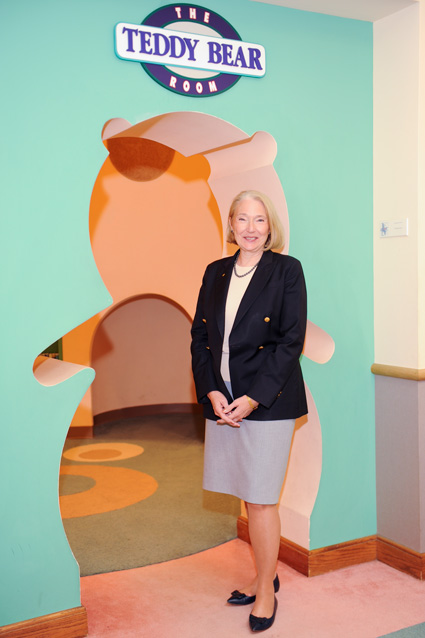Judith A. James, MD, PhD, is a clinical investigator at the Oklahoma Medical Research Foundation. She is member and program chair of the Arthritis and Clinical Immunology Program. James is also a Lou C. Kerr Endowed Chair in Biomedical Research and a professor at the University of Oklahoma Health Sciences Center. It’s a career track that this Pond Creek, Okla., native has wanted since she was a young child.
I’m a fifth-generation Oklahoman from a small, rural town. I told my parents I wanted to be a physician when I was 4 years old. I was always really interested in why certain people got sick and would frequently talk to my pediatrician about this. In fact, in my chart he once wrote, “Look up this precocious child in 20 years.” While I was in high school, a physician came to Pond Creek that let me shadow and would take me on house calls. I was always asking him questions, like “Why do these people have diabetes? Why do certain people have certain diseases?” He told me, “You will never be happy as just a physician. You have to do research.”
While an undergraduate (at Oklahoma Baptist University) I was named a Fleming Scholar at the Oklahoma Medical Research Foundation. This really got me excited about science and about melding science with medicine to provide better treatments and understanding for patients.
When I came to OMRF, I wanted to work in asthma research. Multiple people in multiple generations in my family suffer from – and have even died from – asthma. Asthma is a component of autoimmune disease. While working with a clinical investigator, he took me to see two lupus patients, both my age. This brought home to me how devastating autoimmune diseases can be.
Autoimmune diseases afflict 1 in 7 Americans at any one time. We all have this immune system that protects against cold, flu and other illnesses, but sometimes this normal defense mechanism attacks itself. This attack results in diabetes, arthritis, lupus and other autoimmune diseases. Lupus is the prototype of an autoimmune disease because it affects every organ in the body. I am a clinical investigator and see patients on a weekly basis that agree to participate in helping us try to understand this disease. We enroll lupus patients, family members and healthy individuals for controls, and study everything from how these diseases affect families to how environmental factors affect patients. We also work on trying to understand if we can develop blood markers to diagnose autoimmune diseases earlier.
My hope is to cure lupus. Even though we have an FDA-approved drug for the treatment of lupus, other patients need other types of therapy. We’ll keep working, but unfortunately right now we have treatments, not cures. Cures are further off right now than I would wish.

























